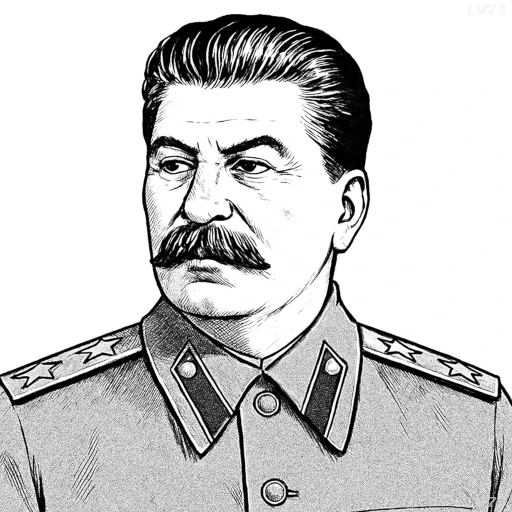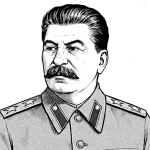“The writer is the engineer of the human soul.”

- December 18, 1878 – March 5, 1953
- Born in Georgia
- Politician
table of contents
Quote
“The writer is the engineer of the human soul.”
Explanation
This quote reflects Stalin’s belief in the power of literature and writers to shape the collective consciousness and moral fabric of society. By calling the writer the “engineer of the human soul,” Stalin is emphasizing that writers, through their works, have the ability to mold and direct people’s thoughts, emotions, and beliefs. Literature, under Stalin’s regime, was seen not merely as a form of artistic expression, but as a tool to advance the ideological goals of the state. Writers, therefore, were tasked with creating narratives that aligned with the values of socialism and the Soviet state, serving as instruments to guide the population toward the desired vision of society.
Historically, Stalin’s regime was known for its tight control over the arts, especially literature. Writers who did not conform to the party’s expectations were subject to censorship, persecution, or even execution. The official policy of Socialist Realism required that literature portray the lives of ordinary workers in a glorified and idealized manner, celebrating Soviet achievements and downplaying any criticism or dissatisfaction. Through this state-sponsored control, Stalin saw writers as crucial to shaping the moral compass of the population, ensuring that they adhered to the ideological doctrines of the Soviet regime. The role of the writer, in this context, was not just creative, but a moral and political responsibility to steer the public toward loyalty to the state.
In modern terms, this quote reflects the continuing power of writers and media in shaping public opinion and influencing societal values. Writers, in any era, have the potential to shape ideologies and challenge the status quo through their works. The idea of the writer as an “engineer” suggests a certain precision and intention in how literature can direct the hearts and minds of individuals, making it a powerful tool for both positive social change and, in the case of Stalin, for ideological control. Today, the quote highlights the need for freedom of expression and artistic autonomy to prevent any group or government from using the arts as a means of manipulation. Writers can influence the direction of society for both good and ill, and the freedom to write without censorship is a cornerstone of democratic and progressive societies.
Would you like to share your impressions or related stories about this quote in the comments section?

